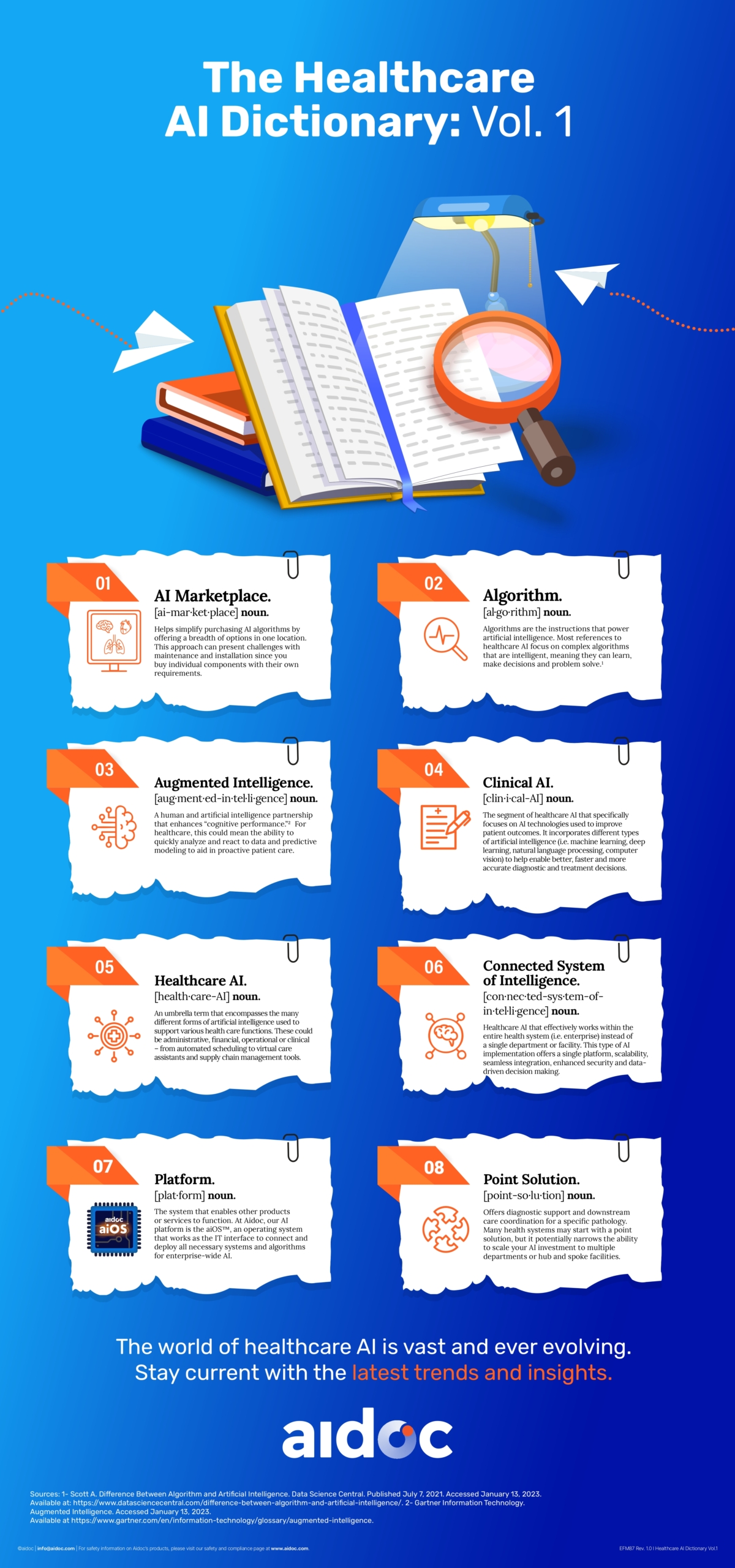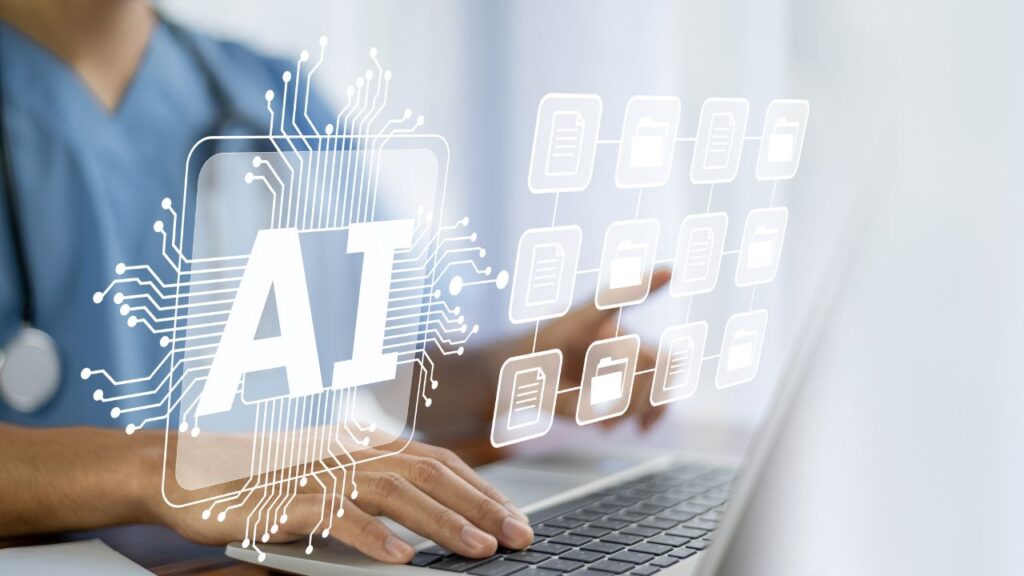Artificial intelligence (AI) is on track to become the standard of care in healthcare. Despite being viewed as an experimental technology, its impact on triaging and clinical workflows has been proven in academic institutions worldwide. In this blog post, we will delve into how AI is utilized in healthcare and how AI-powered healthcare benefits clinicians across various service lines in unexpected ways.
The infographic below offers a brief overview of key terms essential for discussing healthcare AI:

How AI Technology is Used in Healthcare
While the healthcare industry is still exploring the full potential of AI, there are common misconceptions about its role in clinical settings. AI is not meant to replace radiologists or physicians but to enhance their capabilities and assist health systems in achieving their full potential.
Health systems face numerous challenges today, including clinician shortages, financial constraints, patient safety, and access to care. AI technology may not solve all these challenges, but it can help health systems optimize resources. By creating a connected system of intelligence, AI can address structural and cultural challenges, acting as a clinical partner and a tool for health system optimization. Let’s begin by examining the clinical applications of AI.
How AI Technology Is Improving Clinical Outcomes in Healthcare
By enabling health systems to achieve more with less, AI in healthcare contributes to:
1. Reduced Hospital Length of Stay
Shortening the length of hospital stays indicates that patients are receiving timely and appropriate treatment, leading to positive outcomes. For example, introducing AI triaging software at Cedars-Sinai Medical Center resulted in an 11.9% reduction in the length of stay for patients with intracranial hemorrhage and a 26.3% reduction for patients with pulmonary embolism.
2. Enhanced Disease Awareness
AI implementation in healthcare goes beyond triaging and can increase specialist awareness of patients in need. By connecting specialists, AI facilitates quicker response times and improved patient care. For instance, a study at Yale New Haven Hospital reported a 40% increase in advanced therapy for pulmonary embolism patients due to AI-triggered notifications.
3. Expedited Treatment
AI technology has unexpected impacts on treatment times, such as improving the timeliness of care for patients with incidental pulmonary embolism findings. Workflow changes enabled by AI-led worklist reprioritization have resulted in more timely follow-up care for these patients.
How AI Technology is Improving Clinical Operations
Enhancements in clinical outcomes are closely tied to improvements in clinical operations. AI in healthcare makes significant contributions in this area through:
1. Alleviating Administrative Burden
Automating administrative tasks in healthcare can lead to better work-life balance and stronger patient-provider relationships, benefiting recruitment and retention efforts.
2. The Value of AI for Health System Optimization
An AI-enabled read room can bring downstream value to patients and health systems by improving scan analysis, accuracy, workflow, and reading time.
3. The Clinical Partnership of AI
AI serves as a clinical partner, automating tasks, reducing burnout, and enhancing diagnostic efficiency for clinicians, ultimately improving patient care.
The Role of Artificial Intelligence in Healthcare
AI’s impact extends beyond the reading room to empower health systems with a comprehensive AI interface. As healthcare organizations determine AI’s role within their operations, the technology’s capabilities will continue to expand, benefiting both clinicians and patients.


